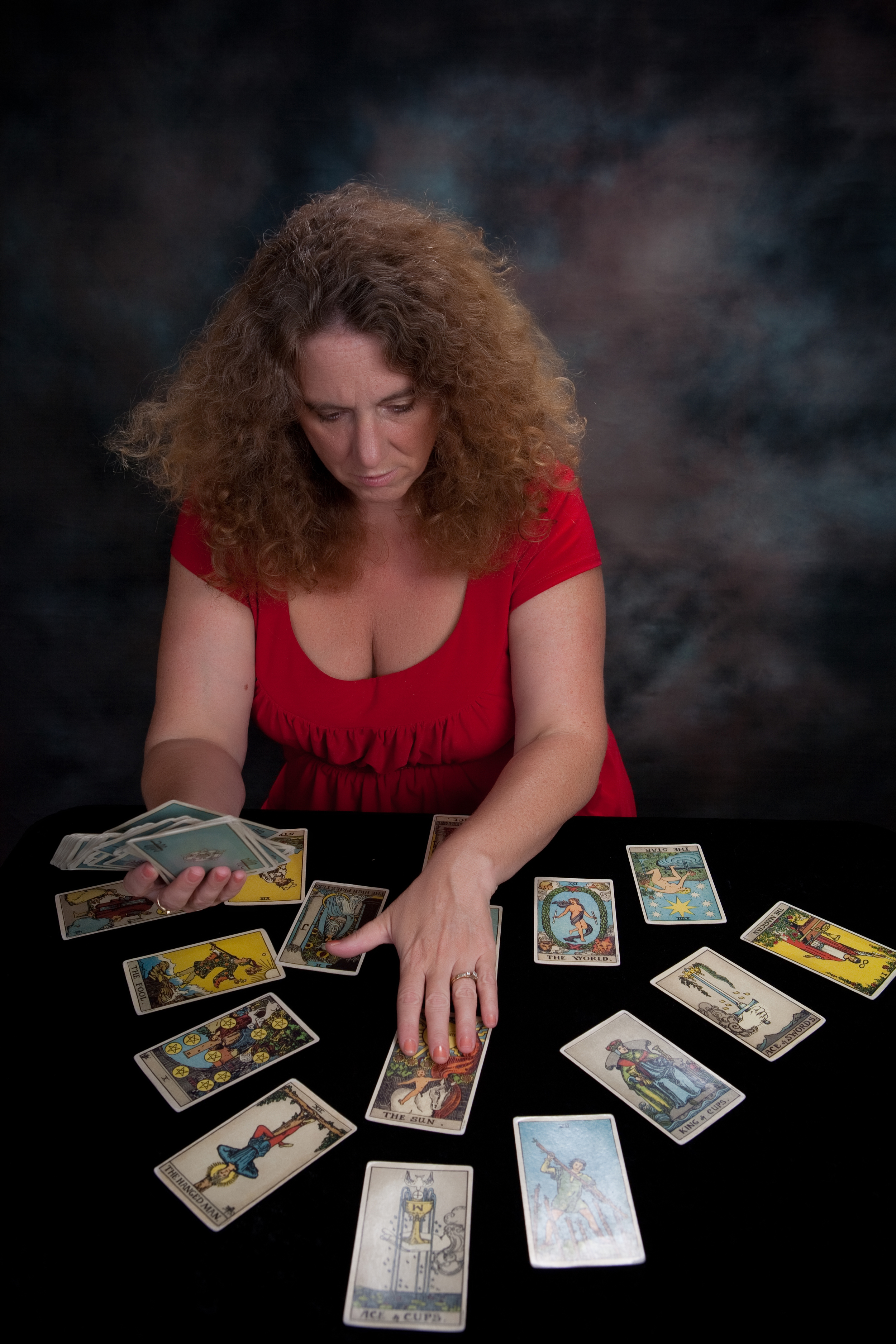
Welcome to my Community Blog for tarot enthusiasts.
Anyone with an interest in tarot, be they student, artist, collector, writer, teacher or reader, is welcome to
to include here.
Answers to Your Questions about Tarot: Being Objective in Self Reading
This week’s question comes from a new tarot student who is developing a self-reading practice, but is having a hard time being objective in interpreting the answers she receives from tarot.
This is a common question. In fact, it’s one I address in my premium Webinar, Personal Tarot – Reading for Yourself.
I would add that objectivity is not just a difficulty for self-reading, it is also hard to be objective when reading for anyone you care about – friends, family, even long-term clients in the professional setting.
Some readers say that, since it is hard to be objective, we just shouldn’t read for ourselves or our close friends and family.
I don’t like the school of thought that says we should avoid things because they are difficult. Learning to do difficult things well takes time, but the results are always worthwhile.
Learning objectivity allows us to access the wisdom of tarot in self-reading, and makes us better readers for our clients.
Today, let’s focus on some basic things we need to do to stay objective in tarot.
Overall, you will have an easier time if you make these three practices part of your life.
- Recognize your own bias, and your own fears.
- In order to negate fear, we must first acknowledge the role fear can play in interpreting the cards.An anxious or pessimistic person is likely to interpret a card in a more negative way than an optimistic person will. A person who doesn’t want to face hard truths might sugar-coat an interpretation.
- Be aware of your particular tendencies. Be aware of your fears.
- Adopt an attitude of surrender when confronting that which is out of your control.
- Trust that the Universe is unfolding as it should, even if it doesn’t feel that way at the moment.
- Be as proactive as you can be to create what you want in life.
- If you have done everything possible to help yourself, you can relax and be open to what comes next!
Practicing these three steps will help you to release anxiety and unhealthy attachments.
Before you begin even the most casual or short tarot reading, make sure you create sacred space. Release your worries, focus your mind, and invoke your spiritual guardians. The more serious you are about divination as a spiritual practice, the more you will be able to tap in to the wisdom of the Universe.
When you are ready to read, make sure your question is as open-ended as possible. “What do I need to know about…?” Is better than “Will this happen?”
Likewise, make sure your question is of a spiritual nature. “What is my lesson from this relationship?” is a better question than “What is my ex doing right now?”
Here is an exercise to help you maintain objectivity in your readings.
Look at each of the twenty-two Major Arcana cards.
What lesson does each Major Arcana card have for you about maintaining objectivity?
For instance, perhaps the Fool maintains objectivity by living in the moment and not worrying about what comes next. Perhaps the Magician keeps a good inventory of resources in order to be prepared for whatever comes.
If you like, share your exercise in the comments, or make a video about it!
And, if you have a question about tarot, send me an email!
Christiana Answers a Question about Objectivity
Video of Christiana Answers a Question about Objectivity
Find Yourself with Divination
This is a cross-post from my Tarot Trends Personal Blog.
Who are you, at your core?
This is a topic I often speak about, and write about, because it comes up so often in readings.
One of the reason that divination is so helpful is that divination is a way to help us discover our true identity – our core.
Sometimes we get stuck trying to be the person other people want us to be.
Sometimes we get stuck trying to become the person we think we should be.
Sometimes our self-perception is marred by low self-esteem or over-inflated ego.
Tarot, astrology and numerology are ways for us to look into a cosmic mirror, and discover things that are true about the self.
The more we are able to understand the core self, the more at peace we will be.
There are some people who misuse tools of divination, like tarot. They use the tool only to make predictions in an effort to assuage anxiety about the future. They never use the cards, nor any psychic tool, to actually question their own behaviors and discover more about the self.
The irony is, this very practice works to dispel anxiety, because once we feel solid in who we are, it is very hard to feel anxious about anything. Anxiety is most often born of a misunderstanding of self.
The significator card in a tarot spread is helpful in discerning “Who am I at the present moment?” Significator cards that we chose to represent ourselves help us discern “Who am I at core?”
If you want to learn about yourself, learn about your birth number, your sun, moon and rising sun, and the tarot cards associated with them.
This information should paint a clear picture of your motivations, your path and your sense of self.
There are those who say that we should not read tarot, or use other tools, for ourselves. They people may think we will come from the perspective of the anxious person using tarot to relieve her fear of the future.
But when we use our tools to understand who we are, we become strong, self-aware and healed.
I will be teaching a webinar on self-reading on July 24. Join us!



